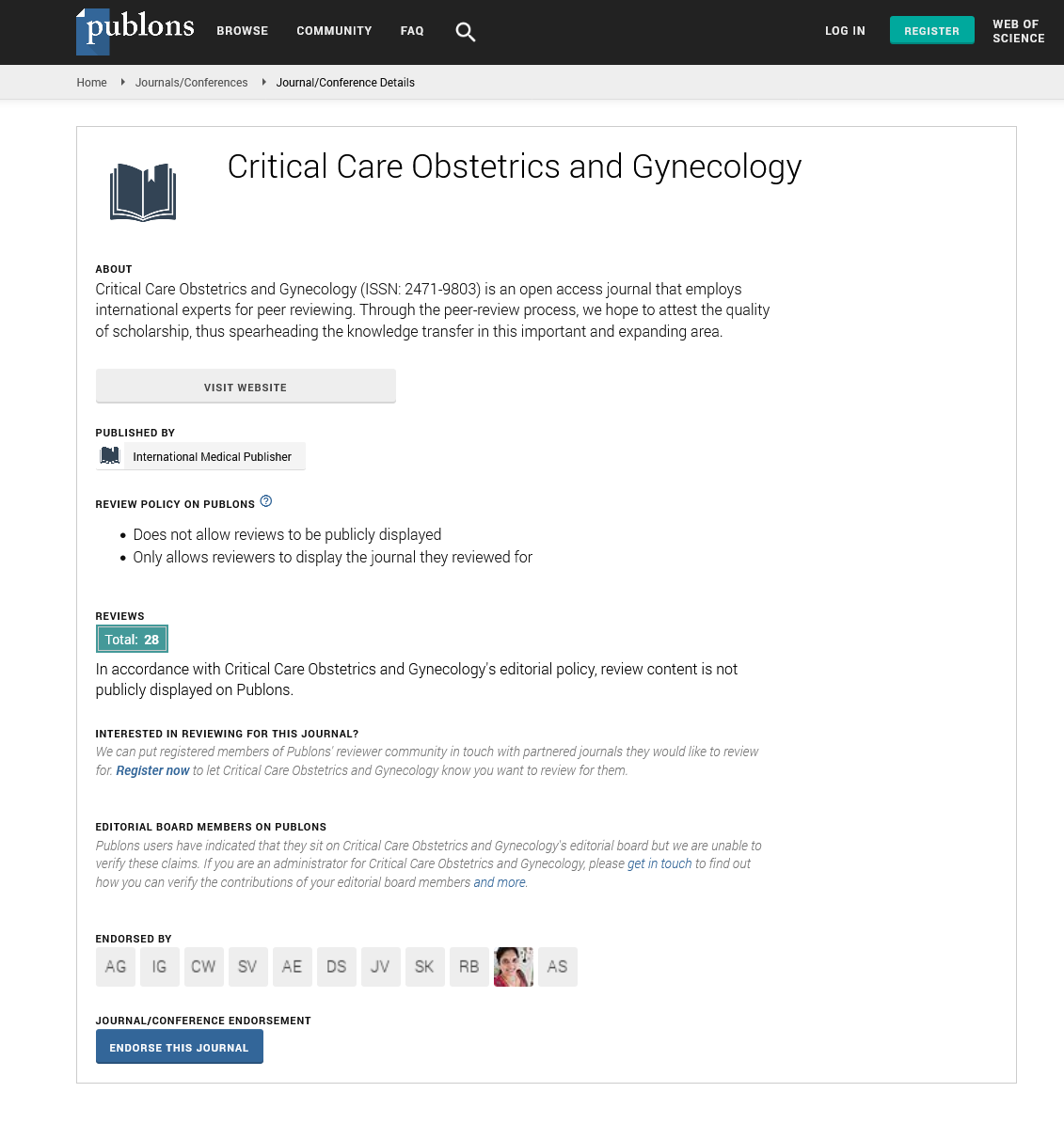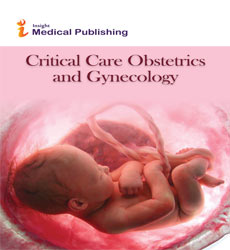Abstract
Pregnancy Outcomes in Patients with Bleeding in First Trimester
Aim: To study the relationship of first trimester maternal bleeding with its effect on fetal and maternal outcomes.
Methods: A case control study was performed on 250 pregnant women in department of obstetrics and gynaecology in st. stephens hospital, New Delhi. Subjects were divided into two groups: 1) bleeding in first trimester as cases 2) no bleeding in first trimester as control. Patients were followed up until delivery and each materno-fetal complication was registered.
Results: First trimester bleeding was associated with increased risk of preterm delivery, placenta previa, pregnancy induced hypertension/preeclampsia (PE), Low Birth Weight (LBW) and Neonatal Intensive Care Unit (NICU) admission. In our study most common antenatal complication observed in both case and control groups was Premature Rupture of Membranes (PROM), seen in 33.6% (n=42) and 13.6% (n=17) respectively which is statistically highly significant (p<0.001). Other complications observed were preterm labour, Preterm Premature Rupture of Membrane (PPROM), antepartum hemorrhage, preeclampsia and gestational hypertension and Intrauterine Growth Restriction (IUGR). Outcome of pregnancy in the two groups is shown in table 3. Incidence of Emergency Cesarean section was found to be 57.6% in case group and 19.2% in control group, which was statistically significant (p<0.001). Complications observed were Postpartum Hemorrhage (PPH), retained placenta, need of blood transfusion and ICU care. However none of them were statistically significant.
Conclusion: Our study suggests that bleeding in the first trimester is correlated with an increased incidence of late-pregnancy and perinatal complications and, therefore, these pregnancies should be considered as high risk ones.
Author(s): Manmeet Kaur*
Abstract | PDF
Share this

Google scholar citation report
Citations : 148
Critical Care Obstetrics and Gynecology received 148 citations as per google scholar report
Critical Care Obstetrics and Gynecology peer review process verified at publons
Abstracted/Indexed in
- Google Scholar
- China National Knowledge Infrastructure (CNKI)
- WorldCat
- Publons
- Geneva Foundation for Medical Education and Research
- Secret Search Engine Labs
Open Access Journals
- Aquaculture & Veterinary Science
- Chemistry & Chemical Sciences
- Clinical Sciences
- Engineering
- General Science
- Genetics & Molecular Biology
- Health Care & Nursing
- Immunology & Microbiology
- Materials Science
- Mathematics & Physics
- Medical Sciences
- Neurology & Psychiatry
- Oncology & Cancer Science
- Pharmaceutical Sciences


